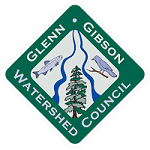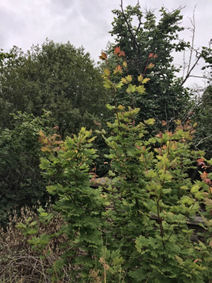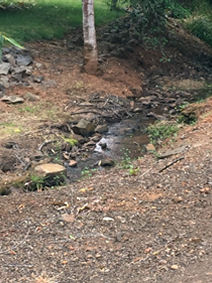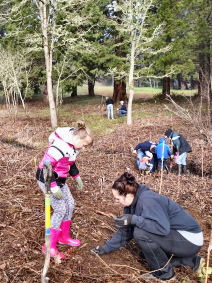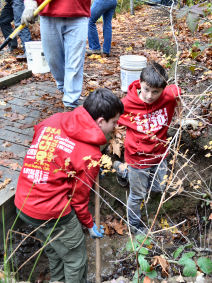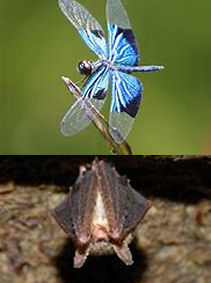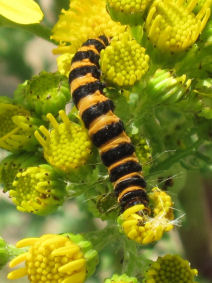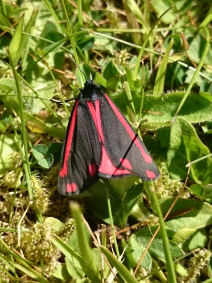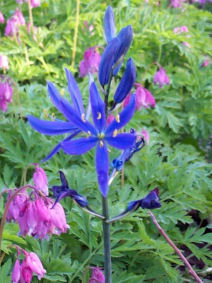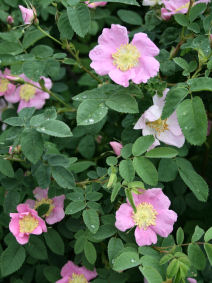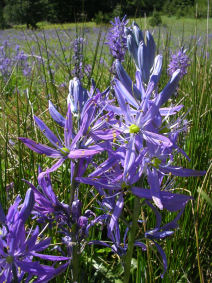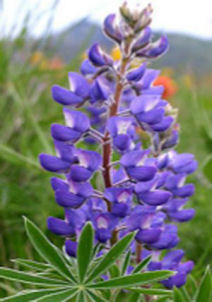WHERE WE LIVE ...
We all live in a watershed – an area of land where all surface water and groundwater drains to a common outlet point like a stream, river, wetland, lake or bay. No matter where you live, you are in a watershed. And what you do in your part of the watershed, from how you care for your yard to how you dispose of waste, affects the waterways into which it drains. Fortunately, there are simple actions each one of us can take to help protect our watersheds and waterways!
UNDERSTANDING HOW WATERSHEDS WORK...
A watershed is the area where all waterways drain to a single point. The Glenn and Gibson Creeks Watershed drains to the Willamette River at Rice Rocks, in the area across from Keizer Rapids. It is 14 square miles in area and includes both urban and rural landscapes. Healthy watersheds capture, filter and slowly release all precipitation. This means cool, clean water that nature provides without the need for expensive artificial treatment.
Trees and other vegetation and porous soils provide those functions of a healthy watershed by taking up nutrients and pollutants. This part of the watershed also means habitat - homes for all the native species we depend upon. The more the watershed loses its vegetation and is hardened through soil compaction or paving, the less it is able to function.
SHADE FOR OUR STREAMS...
A healthy riparian corridor with native grasses, shrubs and trees provides habitat and improves water quality. 90% of all species depends upon the riparian corridor for some part of their life. If you are lucky enough to live by a stream, preserve and protect the riparian corridor. You will be rewarded by the knowledge that you are protecting the home of many aquatic species, insects, birds and mammals. Plant native trees and shrubs and establish a “no mow” zone along the shores of streams and lakes. These buffer strips will help protect water quality, control erosion, filter storm water runoff and provide essential fish and wildlife habitat.
LIMIT USE OF PESTICIDES, HERBICIDES AND FERTILIZERS...
Nutrients from fertilizer run off can lead to excess plant and algae growth in waterways. Minimize your use of lawn and garden fertilizers and maintain a fertilizer-free buffer strip along shorelines. The rapid loss of pollinators is thought to be caused by the use of pesticides and herbicides. Here are some natural pest controls that help, not harm.
PLANT NATIVES...
Native plants provide food and cover for pollinators and require less maintenance. They are also very beautiful. They require less water and fertilizer and are more resistant to pests and disease since they are already adapted to local conditions.
DON’T “P” IN THE WATER
Runoff containing too much phosphate (“P”) helps feed algae blooms and weed growth in area waterways. Use only phosphate-free automatic dishwasher detergents, deck cleaners and lawn fertilizers.
SCOOP THE POOP
Pet waste left out in the yard, on sidewalks or on roadsides washes away when it rains and is a major contributor to bacteria problems in local waterways. Dispose of pet waste properly by putting it in a sealed bag in the trash, flushing it down the toilet, or burying it in your yard.
DON’T CLUTTER THE GUTTER
Our storm drains don’t go to a treatment plant – they discharge directly into the closest waterway! Don’t dump paint, motor oil, pesticides, cleaning products or other hazardous household materials into storm drains. Likewise, don’t sweep your lawn clippings or leaves into storm drains.
LET IT GROW
Don’t mow your lawn shorter than 2 ¾” to 3”. This
will allow it to shade weeds and develop deeper, healthier
roots. After mowing, leave your grass and leaf clippings on
the lawn. They will decompose rapidly and naturally
fertilize your lawn.
HOLD BACK THE FLOOD
Impervious surfaces such as pavements and roofs cause rain to run off rapidly, which can cause flooding and stream bank erosion during rainstorms. Minimize runoff by redirecting downspouts into vegetated areas, installing rain barrels or planting a rain garden. Use the stored water for your garden and other landscaping.
GET PUMPED
Septic system failures can be costly and can contaminate groundwater and nearby surface waters. Have your septic system inspected and pumped every three years.
BE WATER WISE
Do your part to reduce the volume of wastewater from your home. Use low-flow faucets, showers, and toilets and repair any leaks. Take shorter showers, and turn off the tap when brushing your teeth. Run dishwashers and clothes washers only when full, and wash your car and water your lawn only when necessary. You will not only be conserving water but also saving money!
Tips selected from info at Chautauqua Watershed Conservancy
